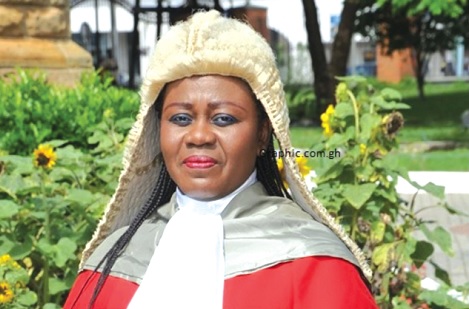
Criminal justice: How much punishment is enough? (2)
The principles upon which sentences are imposed have been stated in the case of Kwashie v The Republic [1971] 1 GLR 488 at 493 where it was stated thus:-
In determining the length of sentence, the factors which the trial Judge is entitled to consider are:
i. The intrinsic seriousness of the offence.
ii. The degree of revulsion felt by law-abiding citizens of the society for the particular crime.
iii. The premeditation with which the criminal plan was executed.
iv. The prevalence of the crime within the particular locality where the offence took place, or in the country generally.
v. the sudden increase in the incidents of the particular crime
vi. Mitigating or aggravating circumstances such as extreme youth, good character and the violent manner in which the offence was committed.”
It is by the application of the above principles that many persons found guilty of one crime or the other have been sentenced to various terms of imprisonment.
Kwaku Frimpong aka Iboman vrs The Republic. Criminal Appeal No J3/5/2020 of 18th January, 2012, is an armed robbery case, in which the appellant robbed a person of his BMW saloon car.
He was sentenced to 65 years in prison.
The matter came before the Supreme Court for reduction of the sentence. In his leading judgment, his Lordship Justice Jones Dotse of the Supreme Court remarked:
The time has perhaps come for more reformative methods of punishment to be fashioned out by the state.
For example, it is not desirable to consign convicted robbers to lengthy prison terms say 65 years without taking into account the social effects it will have on the social fabric of society generally.
This is because if as is happening, the lengthy prison sentences have failed to deter people and the resultant effect is that many more young people are sentenced to long prison terms, then what type of society are we building?
In no time, most of the productive young men and women will be behind bars and this no doubt will have a negative effect on the country.
The time is indeed ripe for us as a country to seriously take a second look at our criminal justice system with a view to carrying out serious reforms.
Recommendations
In light of the observations of Dotse JSC, I recommend the following:
• Community or non-custodial sentences should be prescribed for all juvenile cases, and misdemeanours. Counselling and mentorship should be used as corrective measures to restore normalcy to deviant behaviours of juveniles.
• With regard to community work, the district assemblies must liaise with the Prison Service for identification of specific works that would be productive of environmental health of the community, otherwise, mere physical weeding of anywhere would not benefit the community.
• Remandees whose trials have been delayed beyond two years should be released immediately. When the Police or the Attorney-General complete its investigations, or have completed the case profiles for quick trial, then they could always re-arrest the persons for trial.
• Presidential Pardons. Persons sentenced to death who have been sobered by prison life and have served say about twenty years or more of their life, could be considered for Presidential pardon.
The Attorney-General and the Prison Service should work in tandem to effect this.
• Parole/Probation should be part of the legislation to assist in reforming persons.
• Long-serving prisoners must undertake vocational, agricultural works to prepare them for resettlement.
• The IGP must submit monthly reports to Magistrates and the Judges on the number of persons in police cells, awaiting trial. And they must also receive reports from the AG on the status of remandees in our prisons.
Injustice
It seems to be that because most criminals come from the lowest stratum of society, we the privileged do not give them a modicum of consideration and respect but leave them at the periphery of society in the penumbra of gross injustice.
The Chief Justice, the Attorney-General, and the Director of Ghana Prisons have some work to do for the nation, and, thereafter, Parliament could come in to finalise the reformation of criminal justice administration in Ghana.
